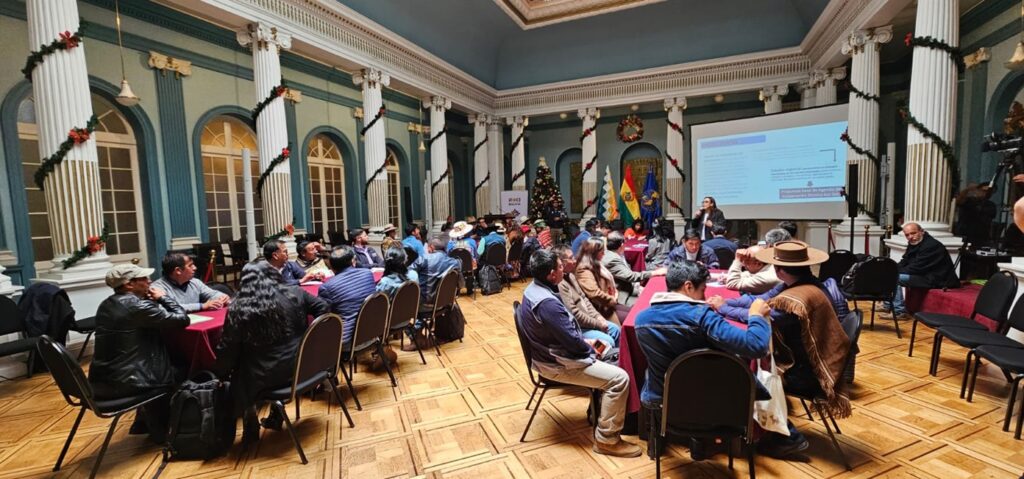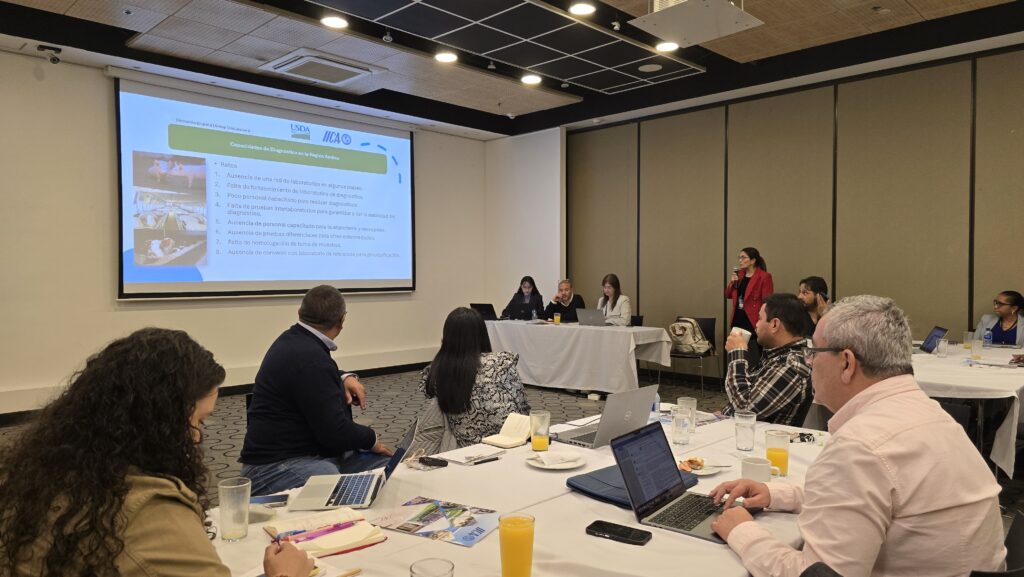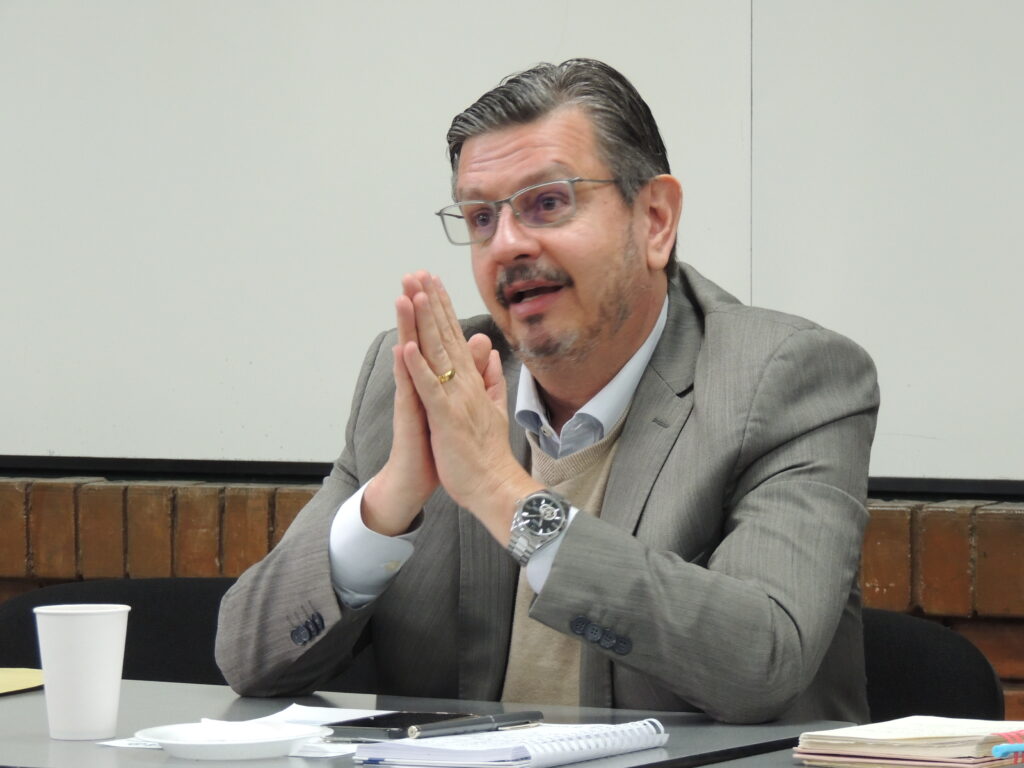El encuentro, que reúne a líderes mundiales y expertos en desarrollo agrícola y políticas públicas en Des Moines, Iowa, es organizado por la Fundación World Food Prize (WFP), bajo el legado y la inspiración del científico Norman Borlaug, creación de la llamada Revolución Verde, que multiplicó la producción agrícola y salvó de hambre a millones de personas.
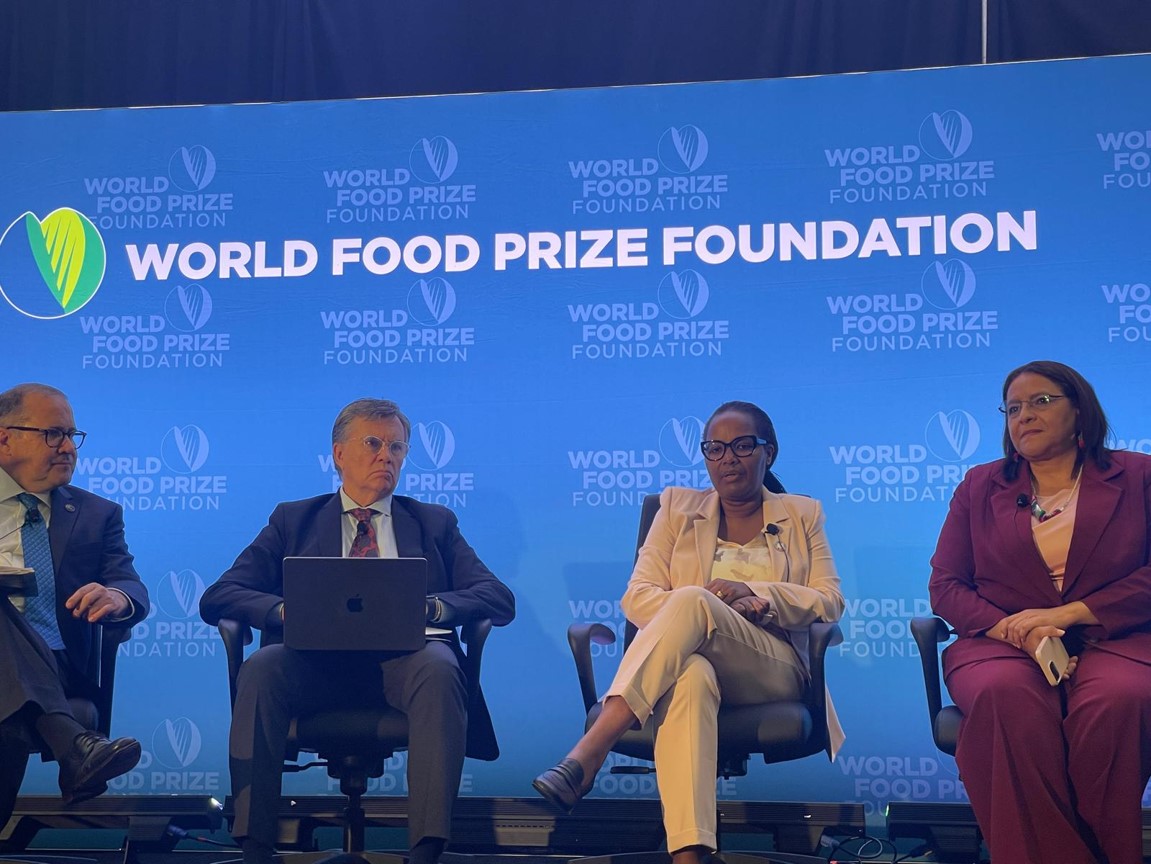
Des Moines, Iowa, 30 de octubre de 2024 (IICA) – Hace falta una nueva narrativa que deje atrás visiones sesgadas y ponga en primer plano el valor estratégico de la agricultura de las Américas para la seguridad alimentaria y la sostenibilidad ambiental del planeta, aseguró el Director General del Instituto Interamericano de Cooperación para la Agricultura (IICA), Manuel Otero, en el Norman Borlaug International Dialogue 2024.
El encuentro, que reúne a líderes mundiales y expertos en desarrollo agrícola y políticas públicas en Des Moines, Iowa, es organizado por la Fundación World Food Prize (WFP), bajo el legado y la inspiración del científico Norman Borlaug, creación de la llamada Revolución Verde, que multiplicó la producción agrícola y salvó de hambre a millones de personas.
El IICA es uno de los protagonistas destacados en los tres días de discusiones que abordan los temas cruciales del presente y el futuro de la seguridad alimentaria. El evento reúne participantes de más de 65 países, incluyendo muchas de las personas consideradas más innovadoras en los esfuerzos por erradicar el hambre en el mundo.
“Creando una nueva narrativa: sistemas agroalimentarios para personas sanas y un planeta sano”, fue el título del panel organizado por el IICA, en el que participaron la Secretaria de Agricultura y Ganadería de Honduras, Laura Suazo -primera mujer que ocupa ese cargo en el país centroamericano-, la vicepresidenta del Fondo Internacional de Desarrollo Agrícola (FIDA), Gerardine Mukeshimana -ex Ministra de Agricultura y Recursos Animales de Ruanda- y el Director General del organismo hemisférico, Manuel Otero. El moderador fue el Subdirector General del IICA, Lloyd Day, y participó también como invitado el asesor especial del IICA, el economista Eugenio Díaz Bonilla.
La conversación fue seguida por una calificada audiencia que está participando en el Borlaug Dialogue, que incluyó a Víctor Villalobos, ex Secretario de Agricultura de México y ex Director General del IICA.
Vulnerabilidad y cambio climático
Suazo dio una mirada desde Honduras, país donde la mayoría de los agricultores familiares están en situación de extrema vulnerabilidad frente al cambio climático. Honduras forma parte del llamado Corredor Seco Centroamericano, donde recurrentes sequías han deteriorado los recursos naturales y afectado los rendimientos agrícolas.
La Secretaria Suazo dio detalles de los esfuerzos que se están realizando en Honduras con el objetivo de que los pequeños agricultores -que cultivan cada día los alimentos que están en las mesas de los hondureños- construyan resiliencia y arraigo en el campo, con políticas públicas que tienen mirada de largo plazo y nunca se habían implementado.
Mukeshimana aportó la experiencia del FIDA -una de las tres agencias de las Naciones Unidas para temas de agricultura y alimentación-, que ha desarrollado cientos de proyectos para el combate contra el hambre en zonas rurales de países en desarrollo.
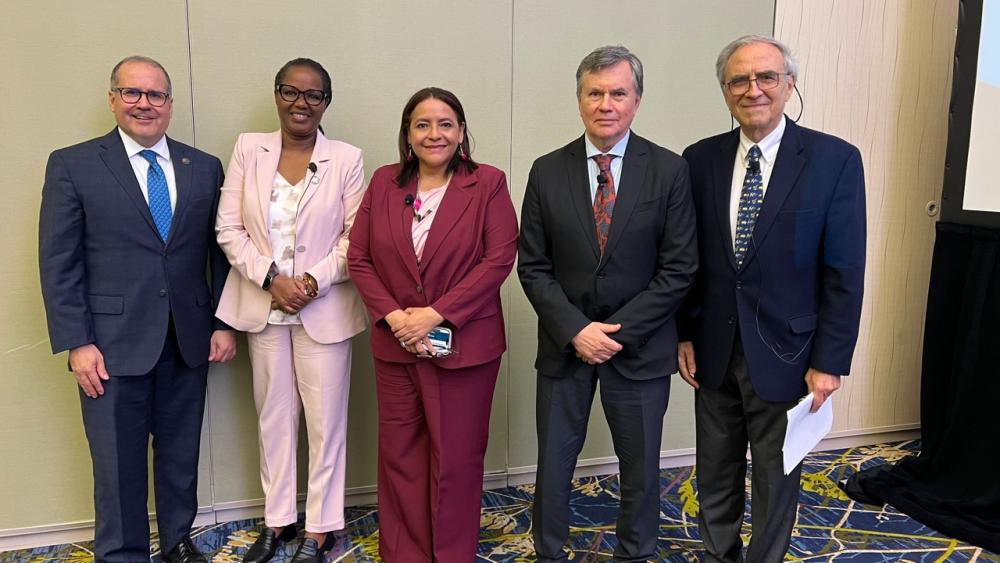
Otero hizo hincapié en que una serie de eventos geopolíticos han puesto a la agricultura al tope de la agenda global y eso no puede ser soslayado por el continente americano, que es el mayor exportador neto de alimentos del mundo y tiene la más valiosa dotación de recursos naturales.
“Para capitalizar nuestras oportunidades debemos tener claro que hay que construir una nueva narrativa, que sea superadora del viejo relato negativo sobre la agricultura”, explicó Otero.
El relato negativo identifica a la agricultura como un sector extractivo, generador de productos primarios y desvinculado del resto de la economía. Hoy el IICA ya está trabajando con la Universidad de Columbia, de Nueva York, en la construcción de una narrativa que muestre la verdadera cara de un sector productor de alimentos, fibras y energías para el mundo, que al mismo tiempo cuida la biodiversidad y trabaja para mitigar el cambio climático.
Algunos de los elementos que fueron identificados como parte de la nueva narrativa son que la agricultura forma parte de un ecosistema alimentario más amplio, que la seguridad alimentaria significa alimentos saludables y nutritivos para todos durante todo el tiempo y que la actividad es parte de la solución a la crisis climática.
“La agricultura también juega un rol importante en la seguridad energética, a través de los biocombustibles”, afirmó Otero, quien señaló también que el comercio internacional no debe ser solo visto como un medio para aumentar exportaciones, sino además como una herramienta para el desarrollo sostenible y la inclusión social.
“Una nueva narrativa para la agricultura puede cambiar mentalidades, estimular la colaboración a través de una nueva diplomacia y alinear las buenas prácticas agrícolas, extendiendo la adopción de sistemas sostenibles que no solo sean más productivos sino también regenerativos, resilientes ante el cambio climático y socialmente justos”, concluyó.
Díaz-Bonilla, por su lado, recordó que las Américas son cruciales para la seguridad alimentaria y la sostenibilidad ambiental del planeta. Indicó que para poder conciliar estas dos funciones se necesita un esfuerzo sostenido en el mundo de ciencia, tecnología e innovación.
Más información:
Gerencia de Comunicación Institucional
comunicacion.institucional@iica.int
